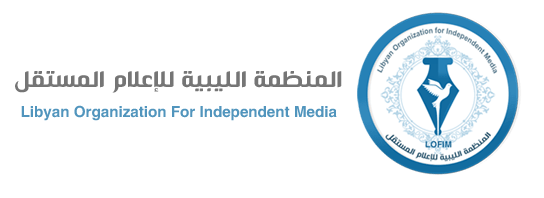
Libyan Organization for Independent Media and 27 Libyan human rights organizations condemn security forces’ search of citizens’ personal devices without permission
Inspection of personal devices at security checkpoints in Libya is a flagrant violation of human rights
A new act has spread in Libya during the past eight years, which is security checkpoints that are deployed in Libyan streets and public roads and borders, searching mobile phones, laptops, and tablets in the possession of citizens while checking their identities or examining car papers and driving licenses, it goes beyond that, If security checks at airports or the borders suspect the traveler, they may search the personal devices in his/her possession without right.
The human rights organizations signing this statement affirm their condemnation and rejection of such practices that violate the law, transgress the public rights and freedoms guaranteed by the Constitutional Declaration, the law and international agreements and standards with protection.
The human rights organizations signing this statement indicate that they have followed up and monitored the wide spread of this phenomenon and its recurrence as it is almost a systematic and organized action by the security authorities, especially when they suspect the person being inspected. This practice is particularly exposed to those interacting with the public affairs, including activists, lawyers, human rights defenders, media professionals, bloggers, and even immigrants and asylum seekers.
Some human rights organizations signing this statement monitored 21 cases of such violations between 2019 and 2020, happened to human rights defenders, media professionals bloggers, migrants, and citizens in different cities like Tripoli, Benghazi, Marj, Misrata, Hoon, Sirte and other cities.
It has been noticed that no matter how different the security check point in terms of its legitimacy, its authority or its geographical location, it acts with the same practice, which means that it is a systematic behavior for the check points, which makes us monitor this negative act that violates the law, condemn it and demand to be stopped.
The inspection of mobile phones, portable personal computers and tablets by the security check points in Libya is an infringement on the privacy and the right of the citizen to maintain personal data, and a serious violation of all international human rights covenants, agreements and standards ratified by Libya such as: the Universal Declaration of Human Rights, The International Covenant on Civil, Economic and Social Rights, the Arab Charter for Human Rights, the African Charter on Human and Peoples’ Rights, where the right to maintain the confidentiality of personal information of citizens is the most prominent protection and rights related to personal freedom.
The wide spread of this unjustified action of inspecting mobile phones, personal computers, laptops and tablets by the security check points in Libya comes within the framework of a security policy that entrenches a culture of arbitrariness and tyranny against citizens, human rights defenders, media professionals and others, which is also a strong indication of the violation of rights, public freedoms and infringement on the sanctity of private life guaranteed by protection in the Constitutional Declaration in Articles (12) concerning the prevention of espionage and the sanctity of private life, and in Article (13) prohibiting eavesdropping on correspondence and phone conversations without judicial permission, as well as the Libyan political agreement in Article (44) requires written permission from the judiciary to allow such searches, except in cases of flagrante delicto.
Furthermore, these unlawful actions not only violate international human rights standards and the Constitutional Declaration, but also the Libyan Criminal Procedure (LCP) Law itself, which authorized arrest accompanied by searches in Article (24) with condition of availability of sufficient evidence of the accusation, and that inspection is limited here to any dangerous weapons or tools that are in his/her possession. Article (30) of the (LCP) Law said the legality of arrest and inspection must come as an order from the competent authorities to do so legally.
The inspection remains generally restricted to its purpose according to of Article (30) of the (LCP) Law, whereby inspection is generally not permitted except for searching for or investigating things related to the crime being investigated.
The (LCP) Law defines only two cases in which it is permissible to search without obtaining an order from the judge or the public prosecutor, which are the cases stipulated in Articles (35) (39), and both articles do not allow the judicial arrest officer to confiscate personal mobile devices or personal and portable computers or devices, let alone searching these devices because they are neither weapons nor dangerous devices.
the Articles (43) and (44) of The (LCP) Law allow the judicial arrest officer to seize all things in possession of the suspect and keep them in a closed box or envelop and to write a record of them, including personal electronic devices, but the law does not allow the inspection of their contents, not even by looking at the information stored in it. The prevailing practice of inspecting the contents of personal electronic devices randomly and in a moody manner, according to the judgment of the judicial arrest officer responsible for the arrest, in the hope of seizing any material that violates the law in it, is a violation of the law, as it constitutes the crime of searching people and it is punished by imprisonment in the Libyan Penal Code.
Therefore, the human rights organizations that signed this statement renew their condemnation and rejection of such practices that violate the law and invade on public rights and freedoms guaranteed by the constitution and the law, demand:
- State agencies and institutions to implement international standards of international human rights law and international humanitarian law and to abide by international agreements ratified by the Libyan state.
- The state’s security and police agencies and institutions to respect and implement the legal articles contained in local legislation that provide the necessary guarantees and protections for citizens electronic and digital devices.
- The Ministry of Interior to issue clear and explicit instructions that prohibit judicial officers from inspecting mobile phones, laptops, and tablets while they are conducting security stops.
To hold the perpetrators of these practices accountable and take disciplinary and legal measures against them. - Judicial authorities to exclude any evidence obtained from inspecting mobile phones, laptops and tablets unless the inspection is by virtue of a search warrant issued on the basis of reasonable suspicion that evidence exists in connection with an ongoing investigation.
- Media outlets, electronic websites and bloggers to promote citizens’ awareness of their rights of which they are not aware of and direct them to file complaints against those who violate the sanctity of private life and search their electronic and digital personal devices without the permission of the competent authorities.
July 29, 2020
The signatory organizations:
- Defender Center for Human Rights
- Biladi Organization for Human Rights
- Youth for Tawergha Organization
- Libyan Organization for Independent Media
- Libyan crime watch organization
- Libyan Institution for Investigative Journalism
- Aswat Media Network
- Touarega Youth Organization for Dialogue and Debate
- Independent Organization for Human Rights
- The Arab International Organization for the Rights of Women
- Aman Organization against Racial Discrimination
- Urban Organization for civil Orientation
- Women Wisdom Association for Women and Culture
- Cabu Association for Culture and Heritage
- Helping Hand for charity work
- Attawasol Organization of Social and Cultural Communication
- February 17 organization for the environment and human rights
- Solidarity Organization for Human Rights
- Voice of the Immigrant Organization for Human Rights
- Reach Out Foundation for Relief and Humanitarian Action
- Al-Bareeq Organization Children’s Rights
- Biladi organization for Human Rights
- Tabaiano Organization for Human Rights
- Al-Bunyan Al-Marsous for Media , Development and Peace
- South Hope Organization for Peace and Sustainable Development
- Robiana Cultural Forum
- Libyan volunteer group for human rights
- Libyan Organization for Legal Aid

